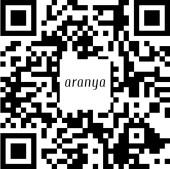UCCA Beijing Open Today, 10:00-19:00 (Final entry: 18:30)
UCCA Dune Open Today, 9:30-18:00 (Final entry: 17:30)
UCCA Clay Open Today, 9:00-18:00 (Final entry: 17:30)
UCCA Dune"Drifting Realities: The Archipelago of Food Discourses" Session 4
2020.10.10
"Drifting Realities: The Archipelago of Food Discourses" Session 4
Workshop led by Elia Nurvista | Inauthentic Cooking Class
2020.10.10
15:00–16:40
Recipes and food are embedded into many countries and ethnic groups’ claims to authenticity and cultural heritage. However, the claims made via food as a cultural value are often lacking in narrative or omit background—for example how ingredients or cooking methods have spread through the movement of people caused by conquest, enslavement, or colonization.While crops and recipes have always been attached to their origins, it remains worth asking if authentic dishes and recipes really exist, or if they are a far-fetched concept that hints at our obsession with ownership? Why does this phenomenon exist? The question of who owns intangible cultural heritage becomes complicated when placed in a capitalist political economy. Artist Elia Nurvista is interested in exploring how this issue takes on an ambiguous character, in which goods are accepted, yet humans are rejected—for example, the contradictions posed by the figure of the asylum seeker or migrant within “glocal” representation of food culture. In her workshop, the artist Elia Nurvista will present her artwork and cooking course, the “Possibility of Inauthentic Recipes” as a platform of discussion. She will first attempt to open up this topic by presenting her video work Safeguarding the Curry Burger, which explores the intangible cultural heritage of a fictional recipe. The workshop then continues with an interactive cooking session of hybrid cuisine, and an open discussion.
This workshop aims to foster discussion on issues surrounding ideas of authenticity, belonging, and identity. Participants will be encouraged to create new recipes using typical food from around the world. Nurvista (who will be attending remotely) shall also encourage reflection about on topics such as refugees, the tourism industry, and authentic recipes. Please note that the artist will not be teaching participants how to cook specific dishes.
Workshop Schedule
15:00 – 15:10 Introduction
15:10 – 15:40 Presentation of video work
15:40 – 16:10 Cooking and tasting session
16:10 – 16:40 Open discussion and Q&A
Speaker
Elia Nurvista (Artist)
Elia Nurvista (b. 1983) is an artist based in Yogyakarta, Indonesia. She obtained her B.F.A. in visual arts from Indonesia Institute of Fine-Art. Her artistic practice intersects with the boundaries between art and social research, and she is keen to further pursue experiments on developing the possible forms of these two fields and pushing their limits. Nurvista is interested in creating and engaging with projects regarded as critical, leading us to imagine the world we desire. Through these approaches, she attempts to create open dialogues in order to generate social negotiation over existing values. Many of her works concern food, her interest in which is related to issues arising as a result of cooking and eating. Through her observations, these seemingly mundane acts become historicized and recognized as sites of political conflict. At times, they are simply drawn as personal memories.
In 2015, Elia Nurvista initiated Bakudapan, an anthropological food study group based in Yogyakarta which positions food as an entry point for research on issues in the fields of economics, labor, politics, gender, and art. Through this platform, the group experiments with various art media, such as installation, performance, simulation, and video, and then adopts them as tools and methodologies for research.
Elia Nurvista has previously participated in numerous exhibitions and programs including: “Früchtlinge” (Künstlerhaus Bethanien, Berlin, 2019); “How Little You Know About Me” (National Museum of Modern Contemporary Art, Seoul, Korea, 2018); OK. Video Ruangrupa “OpenLAB” residency program (Jakarta, Indonesia, 2017); “Politics of Food” Residency Program (Delfina Foundation, London, UK, 2014); “Adiboga Wonoasri, an Experimental Kitchen and Pop-up Restaurant” (Kedai Kebun Forum, Yogyakarta, Indonesia, 2013); and the Jakarta Biennale (2013).
Moderator
Yan Fang (Curator of Public Programs, UCCA)
Yan Fang is an art critic and curator of public programs at UCCA Center for Contemporary Art. She graduated from University of Paris I Pantheon-Sorbonne with a Master’s degree in History of Art: History of Art and Philosophy, and has previously worked at the Musée national d’Art moderne/Centre Pompidou.

